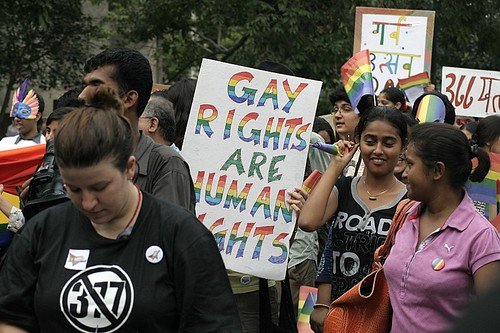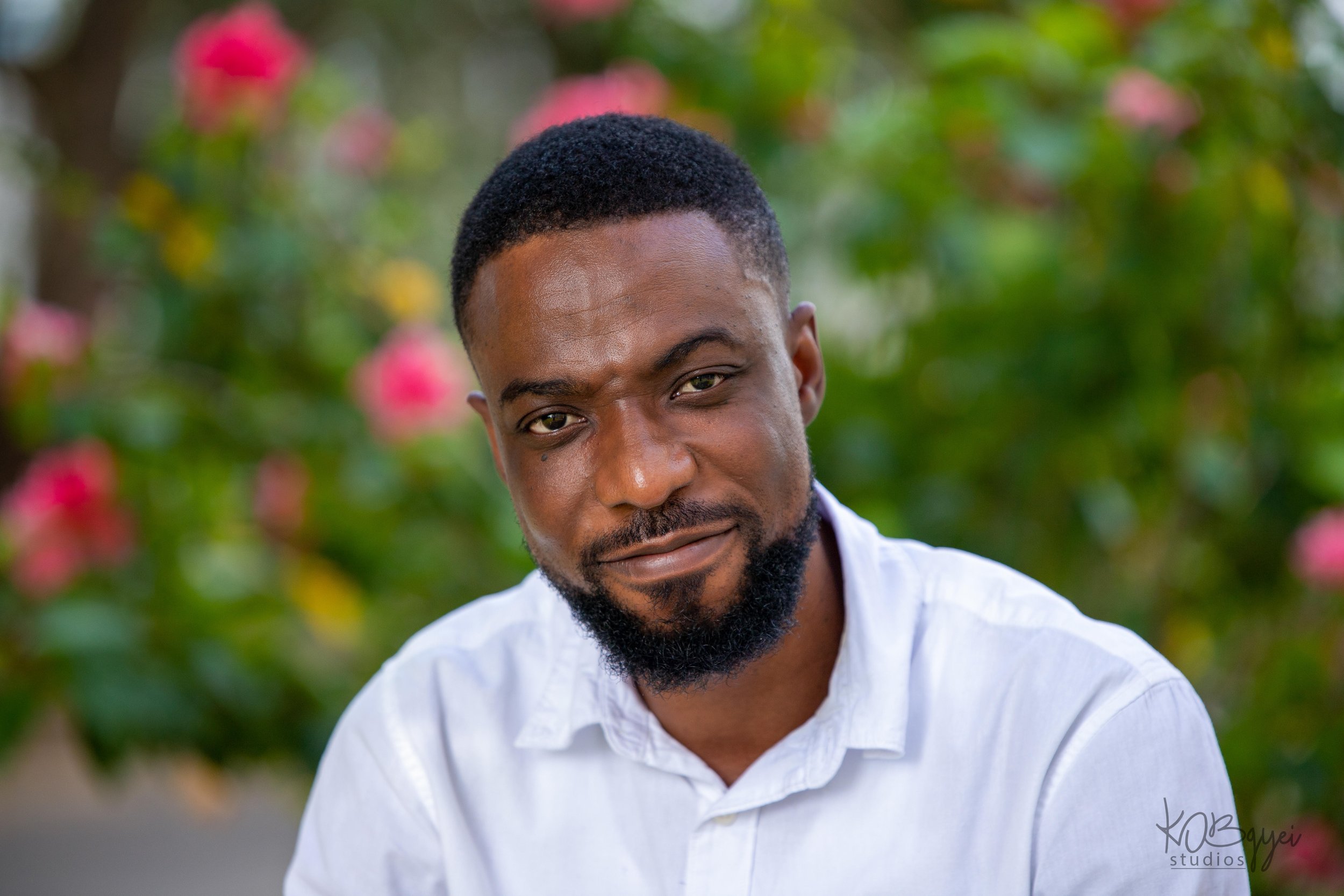Created in the Image of God, Criminalised by the Laws of Ghana
"Gay rights are Human rights" by ramesh_lalwani is licensed under CC BY-NC 2.0
Amidst heated debates over the criminalisation of homosexual relationships, Ghana’s parliament is considering passing a Bill entitled the Promotion of Proper Human Sexual Rights and Ghanaian Family Values of 2021 (“Anti-LGBTQ+ Bill”). The Bill, if passed into law, will usher Ghana into another wave of criminalising homosexual conduct.
Before the debate over the criminalisation of homosexual relationships reached its crescendo in 2021, controversies about LGBTQ+ activities had arisen in 2006 when the Gay and Lesbian Association of Ghana (GALAG) announced that Ghana would host an international conference for homosexual persons.
The conference was declared a national security threat by the Minister of National Security, Mr Kwamena Bartels. Ghanaian society, which is highly conservative, described LGBTQ+ activities as alien to African culture and an imposition levied by morally depraved Western countries.
The threat by foreign leaders such as the former British Prime Minister, David Cameron, to cut budget support to Ghana if the rights of homosexuals are not respected in Ghana cemented this belief that the advocacy for respect of LGBTQ+ rights in Africa is an agenda driven by Western countries.
The latest controversy occurred in 2021 when an LGBTQ+ advocacy centre was inaugurated in Accra. The inauguration was witnessed by state ambassadors, including the Australian High Commissioner, and this triggered significant criticism.
With the establishment of the advocacy centre, moral entrepreneurs felt threatened and needed to act fast to quell LGBTQ+ activities in Ghana. Since 2006, LGBTQ+ debates in Ghana have been politicised, leaving politicians at the mercy of the so-called right-thinking members of society.
Failure to pass stringent laws that proscribe homosexual activities will lead to politicians being voted out of power. Therefore, it is not surprising that Ghana’s parliament is considering passing a Bill entitled the Promotion of Proper Human Sexual Rights and Ghanaian Family Values of 2021 (“Anti-LGBTQ+ Bill”).
The Bill, if passed into law, will usher Ghana into another wave of criminalising homosexual conduct. Currently, section 104(1) (b) of the Criminal Offences Act 29 of 1960 of Ghana criminalises unnatural carnal knowledge, and that includes sexual conduct between persons of the same sex.
The Bill is more extensive and applies to people who identify as members of the LGBTQ+ community or any socio-cultural notion of sex or sexual relationship that is contrary to the ideas of male and female as assigned at birth.
Furthermore, the Bill applies to persons who provide or participate in sex or gender reassignment contrary to the sexual category assigned at birth, except where the procedure is designed to correct a biological anomaly.
Under the Bill, all Ghanaians, including constitutional bodies are under a statutory duty to promote and protect the “proper sexual human rights and Ghanaian family values.” Also, public displays of amorous relations among persons of the same sex and same-sex marriage are prohibited.
The Bill applies retrospectively to disband all LGBTQ+ groups and associations by criminalising the formation of groups and associations that seek to promote LGBTQ+ activities. If passed, it will restrict fundamental constitutional rights of LGBTQ+ persons in Ghana, including freedom of speech and the right to privacy.
“The steps taken to impose stringent sanctions on LGBTQ+ persons in Ghana are a highly misconceived exercise anchored on historical and factual inaccuracies.”
The sponsors of the Bill argue that: (1) LGBTQ+ activities are contrary to the public morals of Ghana and most Ghanaians do not approve of such acts because of their religious beliefs, (2) LGBTQ+ activities trigger grave public health concerns such as the spread of HIV/AIDS, and (3) LGBTQ+ activities are alien to Ghanaian and African culture. Other strands of the argument include the claim that gay and lesbian rights are not human rights and thereby not protected under the 1992 Constitution of Ghana.
It is on the strength of the foregoing arguments that the sponsors of the Bill aver that LGBTQ+ related activities must be criminalised in Ghana. For the sponsors to claim that LGBTQ+ activities are a catalyst for the spread of HIV/AIDS in Ghana triggers a question of ascertaining the causal link between the criminalisation of LGBTQ+ activities and the reduction of the spread of HIV in Ghana.
Nowhere have the sponsors established such a causal link. As such, ascribing penal sanctions to LGBTQ+ activities because of the spread of HIV/AIDS is inconceivable. The claim that LGBTQ+ activities are alien to African and Ghanaian culture is incorrect as several anthropological studies show how some pre-colonial African societies valorised same-sex relationships.
Academic studies conducted over four decades ago established that marriage between persons of the same sex existed in some Ghanaian societies. Accordingly, for the sponsors of the Bill to claim that LGBTQ+ rights are an imposition by morally depraved Westerners and something alien to African culture is factually and historically inaccurate.
Further, the sponsors of the Bill argue that because most Ghanaians oppose the recognition of LGBTQ+ rights on the grounds of religious beliefs, it necessitates the criminalisation of such rights. Ghana is a secular state, and the dogmas of any religion cannot be superimposed on the generality of Ghanaians.
It is therefore surprising that the basis of a law that applies to all Ghanaians is informed by the dogmas of a particular religion.The steps taken to impose stringent sanctions on LGBTQ+ persons in Ghana are a highly misconceived exercise anchored on historical and factual inaccuracies. This will derail the democratic gains Ghana has made over the past three decades.
Dr Theophilus Edwin Coleman holds a Doctor of Laws degree from the University of Johannesburg. He is an Alumnus of The Hague Academy of International Law. He also served as a Legal and Research Intern at the Permanent Bureau of The Hague Conference on Private International Law in the Netherlands. He is currently a postdoctoral researcher at the Centre for International and Comparative Labour and Social Security Law (CICLASS) and the Research Centre for Private International Law in Emerging Countries (RCPILEC) at the Faculty of Law of the University of Johannesburg.
Mr Joshua Kyeremateng, Esq. is an alumnus of Queen Elizabeth commonwealth scholarship and a Global Excellence Stature scholar pursuing his Doctor of Laws degree at the Faculty of Law, University of Johannesburg. He is a practising lawyer called to the Ghana Bar. Mr Kyeremateng seeks to explore the untrodden path of the fourth industrial revolution and its impact on African law. The enforcement of constitutional rights, labour law and corporate law are the core areas of practice in his legal career.




